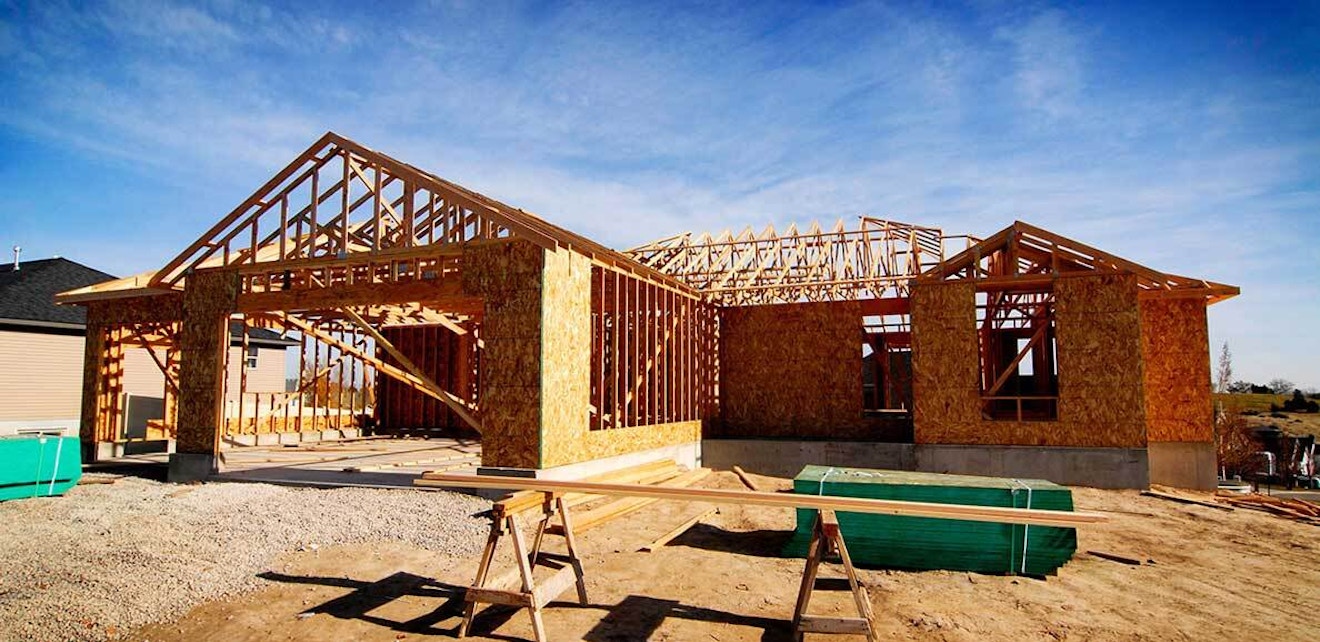Home > Blog
Read Time — 6 minutes
How to Break into the Booming Residential Construction Industry

According to the U.S. Bureau of Labor Statistics, construction has one of the brightest outlooks for new employment opportunities over the next decade. Job growth for construction managers is indicative of the whole industry and is projected to grow 10 percent between 2018 and 2028 — faster than the average for all occupations. If you’re interested in getting into this promising industry and perhaps working toward a career as a residential construction manager, let’s take a closer look at what you should know.
What does a construction manager do?
Residential construction managers plan, coordinate, budget and supervise construction projects from start to finish. Their duties also include hiring and managing subcontractors, monitoring construction progress and quality, securing permits and making sure contractors are paid on time. Many construction managers have a main office but spend time working out of a field office at a construction site, where they monitor the project and make daily decisions about construction activities. They do not typically take part in the actual construction work themselves, although they often gain work experience in construction roles before becoming managers.
Important skills and characteristics
You may have noticed that a lot goes into overseeing a construction project; therefore, construction managers must be well-organized and good at multi-tasking, with excellent business and leadership skills. A short list of the additional skills most needed by construction contractors and managers include:
Math skills: Most construction workers calculate math equations while working, including converting measurements and pricing materials.
Written and verbal communication skills: Construction workers have to communicate with their team, their bosses, other contracting teams, and even the builder. Managers also have to interact with supervisory personnel, owners and design professionals.
Physical endurance: Construction workers spend most of their shift on their feet performing a variety of physical tasks.
Self-motivation: Many construction crews work on a job site with minimal instruction, so they must understand how to follow orders from their employer on their own.
Time management: Contractors and managers often need to set and maintain realistic timelines to ensure each step of a project is completed so other tasks can begin.
Project management: This includes planning deliveries, quality checks, permits and the work schedules of others, as well as analyzing information and evaluating results to choose the best solutions to any problems.
There are also some inherent abilities that can make someone an exceptional construction contractor or manager. According to the U.S. Department of Labor’s O*NET OnLine site, these include:
Problem Sensitivity: The ability to tell when something is wrong or is likely to go wrong.
Deductive Reasoning: The ability to apply general rules to specific problems to produce answers that make sense.
Inductive Reasoning: The ability to combine pieces of information to form general conclusions (which includes finding a relationship among seemingly unrelated events).
Visualization: The ability to imagine how something will look after it is moved around or after its parts are moved, rearranged or built for the first time (as from a blueprint).
Perceptual Speed: The ability to quickly and accurately compare similarities and differences among sets of letters, numbers, objects, pictures or patterns. This includes comparing a presented object with a remembered object.
Resolving conflicts and negotiating with others.
Education
Residential construction managers often have a bachelor’s degree in engineering, construction management or building science, according to the U.S. Bureau of Labor Statistics; a related master’s degree may strengthen a candidate’s job application even further. At the time of this publication, those with a bachelor’s degree in construction science, construction management or civil engineering, coupled with construction experience, will have the best job prospects but need to be aware that when there is a labor shortage, many companies will hire workers who have a high school diploma or GED. Currently, there is also opportunity for workers who went to a trade specific school as well as graduates from a four – year college.
Where to start
Here’s how to start pursuing a career in residential construction, particularly with an eye toward becoming a manager.
Get the right education
Most people think it may require a four-year degree. While construction workers often need a high school diploma or GED before applying for work, a current labor shortage provides opportunities for workers willing to go to a trade school, or simply entering the work force and working your way up inside of a company. They can maximize their skills while in school or on the job by taking advanced math classes and earning a four-year degree as described above.
Get in on the ground floor
Most construction occupations have laborers and helpers who assist journeymen workers, and becoming a laborer or helper is an excellent way to get a start in the construction industry. New hires often work under supervision by an experienced team leader or manager who teaches them how to use the equipment and complete necessary tasks. They also learn safety procedures and practice general skills necessary for the job.
Complete an apprenticeship
Beginning and completing an apprenticeship allows laborers to gain more formal training. Apprenticeships are often two to four years long and combine classroom instruction with on-the-job experience. Students learn important skills like how to follow safety protocols, the correct ways to use tools, and how to read blueprints.
Online resources
For jobs that require training or an apprenticeship, to use Google to search for the job you’re interested in, using the terms “apprentice” or “trainee” and the location where you want to work. For jobs that don’t require training, try any of the popular job-search sites like Indeed.com.
Put in your search terms and the U.S. Department of Labor’s CareerOneStop Certification Finder provides lists of certifications with each certifying organization, education and training requirements, and exam requirements.
Gather the right tools
We live in a technology-driven world, so to be a success in any business, you’re going to need proficiency in productivity software like the Microsoft Office suite and Google’s GSuite as well as general business skills like accounting and budgeting. In construction you’re also likely to need familiarity with specialized software like Autodesk AutoCAD Civil 3D, Procore Project Management, BOLT Residential Construction Scheduling, control and data acquisition SCADA software, HCSS HeavyBid, or Oracle Primavera Enterprise. If you are looking to enter into a less complex segment of construction, you may need to familiarize yourself with basic accounting systems like Quickbooks Online, as well as various project management software designed specifically for your industry segment.
Finally, your entry into the construction world will go most smoothly if you use these right tools from the very beginning. Having a construction management software solution like BOLT in your arsenal, helping to manage your schedule, communication and documentation for every job, will help pave the quickest and easiest road to success. You won’t get bogged down in administrative paperwork like your predecessors, and you will be able to keep track of your jobs on site, with mobile technology, in a way that used to take others exponentially longer back at the office.
To learn more about how BOLT Software can help anyone starting a construction management career, contact us today.



